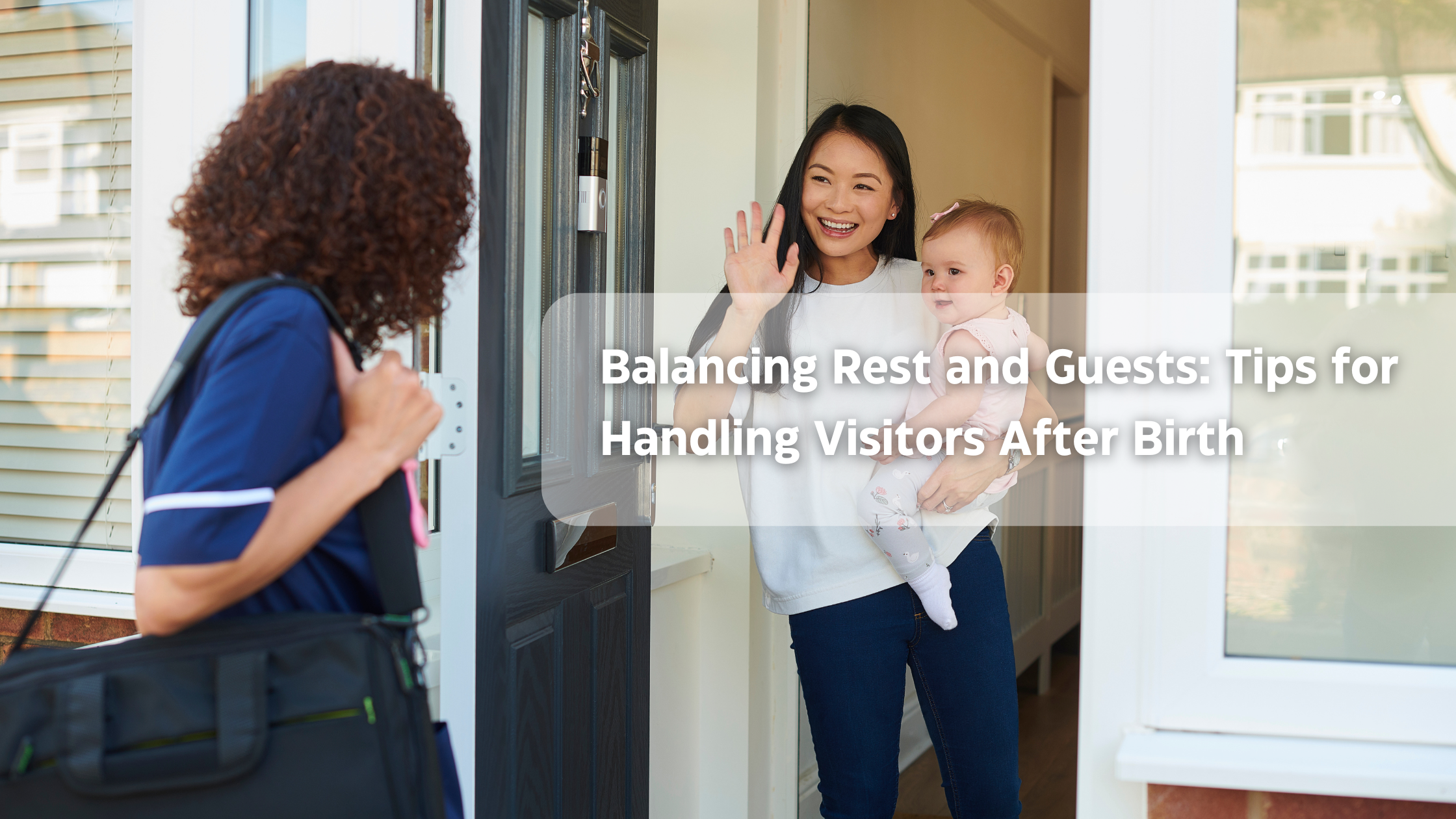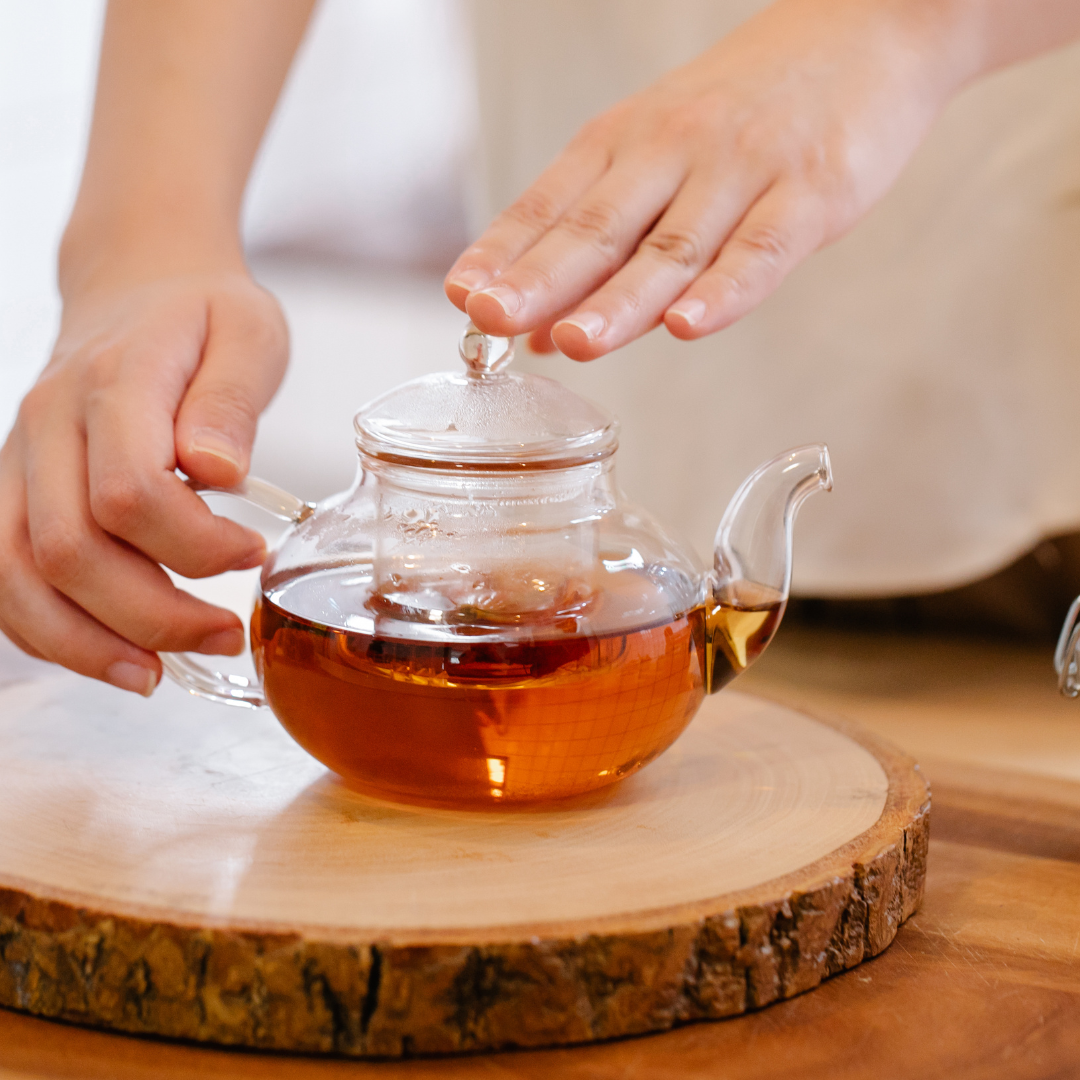Balancing Rest and Guests: Tips for Handling Visitors After Birth
THE IMPORTANCE OF REST POSTPARTUM: PRIORITIZING YOUR HEALTH

UNDERSTANDING POSTPARTUM RECOVERY
Postpartum recovery is a vital period of healing and adjustment for new mothers, usually lasting six to eight weeks but varying for everyone. During this time, women may experience physical discomfort, hormonal shifts, and emotional ups and downs. Fatigue and feeling overwhelming are common, as the body recover from the demands of pregnancy and childbirth. Prioritizing rest and self-care are essential to support both physical healing and emotional well-being. It's important not to rush the process, take it one day at a time and be gentle with yourself as you adapt to your new role.
WHY GETTING ENOUGH REST IS CRUCIAL
Getting enough rest after childbirth is essential, not just a luxury. Rest plays a crucial role in helping your body recover physically from the demands of pregnancy and delivery. It also supports your mental health by reducing the risk of postpartum depression and anxiety. For breastfeeding mothers, adequate rest can improve milk production, ensuring your baby gets the nourishment they need. Additionally, rest gives you the energy and presence to bond deeply with your newborn. Without enough rest, you risk exhaustion, a weaker immune system, and slower healing, which can make caring for your baby more difficult. Prioritizing rest is a key part of caring for yourself during this important time.

Managing Visitors Postpartum: Strategies for New Parents
Creating a Visitor Schedule: Who to See and When
Managing visitors during the postpartum period is important to protect your rest and recovery. Creating a visitor schedule can help set clear boundaries and reduce stress. start by inviting close family members who can provide support, then spread out visits to avoid overwhelming yourself. setting specific visiting hours, ideally when you feel most rested, and keeping visits short around 30 minutes to an hour can make the experience more manageable. It’s perfectly okay to say no or reschedule visits if you’re not feeling up to it. Being flexible and communicating with your schedule clearly to family and friends helps everyone understand your needs and ensures your health remains the top priority.
Communicating With Visitors: Tips For Addressing Feedback
Clear and honest communication is essential when managing postpartum visitors. Clearly express your needs and set boundaries to ensure everyone respects your comfort level. Don’t hesitate to ask for help when needed and address any concerns calmly and directly. Showing appreciation for visitors’ understanding goes a long way. Remember, most people want to support you but may not know how guiding them on what you need can make a big difference. It’s perfectly okay to ask visitors to wash their hands or wear masks if you’re worried about germs. Above all, don’t feel pressured to entertain; your focus should be on rest and caring for your baby.
Providing Support and Comfort to Your Guests
Preparing Your Home and Environment
- Designate a visitor area: Choose a cozy, welcoming space like the living room where guests can sit and chat without disturbing your rest or baby’s sleep. This helps maintain your privacy and comfort.
- Keep it simple: Don’t stress about a spotless home. A quick tidy-up is more than enough your well-being matters more than perfection.
- Control temperature: Make sure the room is set to a comfortable temperature for both you and your baby. Avoid spaces that are too hot, cold, or stuffy.
- Have hand sanitizer available: Place hand sanitizer near entrances or in the visitor area as a gentle reminder for guests to clean their hands before holding the baby.
Offering Refreshments and Assistance
Offering refreshments to visitors can be a kind gesture, but it shouldn’t add stress during your recovery. Keep it simple with drinks like water, tea, or coffee, there’s no need for elaborate snacks. Don’t hesitate to ask visitors to bring something or help, especially if they offer. Using disposable cups or plates can make cleanup easier, and having a few items prepped up in advance can be helpful. Most importantly, don’t feel obligated, your priority is rest and bonding with your baby, not hosting. Visitors are there to support you, and many will gladly pitch in with small tasks like making tea or tidying up.

Showing Appreciation for Your Guests' Support
Showing appreciation to your visitors helps strengthen your relationships and encourages ongoing support. Simple verbal thanks can mean a lot, and sharing baby updates like photos or messages after visits keeps loved ones connected. Make sure to acknowledge any specific help they’ve offered, whether it’s cooking, cleaning, or just being there. If you’re able, sending a brief thank-you note adds a personal touch. Letting visitors know how their presence and support have helped you can make them feel valued. Remember, your recovery and your baby’s needs come first, so don’t feel pressured to be elaborate genuine, simple gestures are enough. Those who truly care will appreciate any expression of gratitude, no matter how small.
In summary, the postpartum period is a time for healing, bonding, and adjusting to your new life with your baby. By prioritizing rest, setting clear boundaries, and communicating your needs, you’ll create a supportive environment that benefits both you and your little one. Simple steps like managing visitors, offering easy refreshments, and showing gratitude can make a big difference without adding stress. Remember, it’s okay to ask for help and to put your well-being first. With patience and self-compassion, you’ll navigate this transition more smoothly and enjoy the special moments with your newborn.
